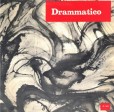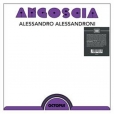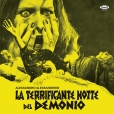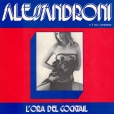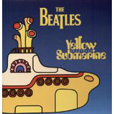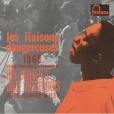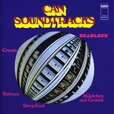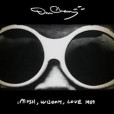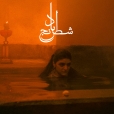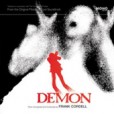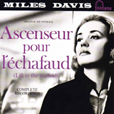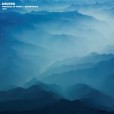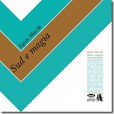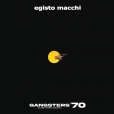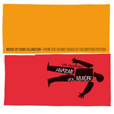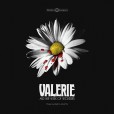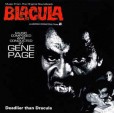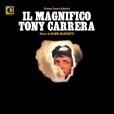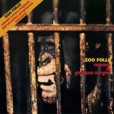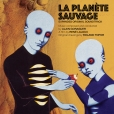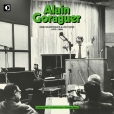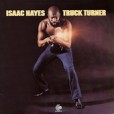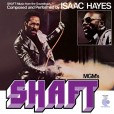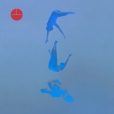Your basket is empty

AA is the close collaborator of Ennio Morricone. He’s worked with Bruno Nicolai, Nino Rota, Franco Micalizzi, Francesco De Masi… He says he wrote the Muppet Song (and that Piero Umiliani nicked his royalties). He whistled for Fellini.
Originally released by Octopus in 1975, Angoscia catches him at his creative peak.
Twelve enactments of mental distress. Anguish, dismay, desperation, uncertainty, pride, resignation, frustration, desolation, agony, prostration, obsession and — finally — fear.
Arnold Schoenberg’s in the house.
A barrel of laughs, then; warmly recommended.
‘Renowned for his work on iconic Spaghetti Western scores with Ennio Morricone, and his groundbreaking contributions to library music, Alessandroni lavishes his other-worldly genius on this wonderful cocktail of an album, blending jazz, bossa and lounge, garnished with his signature wordless vocal arrangements and lush instrumentation. Featuring his remarkable talent on guitar, piano, and mandolincello, this album paints a vibrant portrait of 1970s cosmopolitan cool.’
Lee Morgan, Duke Jordan, Bobby Timmons… plus three expert Latin percussionists… and outstanding contributions by Barney Wilen, on both tenor and soprano saxophones.
Jarvis Cocker’s thrilled to bits — ‘Here, at last, is the the soundtrack to maybe THE underground film of all time in all its crazy daisy glory’. A mental cut & paste of Czech orchestras, folk, jazz and experimental sounds.
Originally released by Kuckuck in 1973, Princess Of Dawn ranges library-style from ceremonial, meditative mantra drones (Triad, Deep Sea, Gothic Velvet, Evening), through sun-worship (Tom Bombaddils Dance), to playful, pulsating forays in analog synth (Desert Rock, Synth Effect, Flea Dance, Laser), by way of the traditional music of the Middle East, India and Europe (Arabia, Reed, Phoenix).
Twenty-six fragments of electronica by the Krautrock mystic, like stepping stones between the phase of music-making which culminated in Aum the previous year, and his imminent departure for Bhagwan Shree Rajneesh’s ashram in Poona, home to key-works like Celebration, Haleakala, Ecstasy and Silence Is The Answer.
Created in collaboration with Walter Branchi from the Gruppo di Improvvisazione Nuova Consonanza, this soundtrack to Mino Guerrini’s 1968 film is among the most strikingly experimental of all Macchi’s music for cinema. A suspenseful, jet-propelled fresh mix of
psychedelia, jazz, and improv, threaded with beautiful melodies.
The first time out; from the master tapes.
Plenty of thrills and spills in this soundtrack to Otto Preminger’s 1959 film. Steeply evocative dynamic and rhythmic contrasts and quick changes in orchestral density get the job done — with a repeated strain of melody — and make for highly entertaining listening, with numerous rollicking brass passages in amongst the piano-threaded impressionism, plus terrific soloing by Johnny Hodges, Ray Nance and co. Highlights include the suspenseful opener, the moody Midnight Indigo, the sublimely sad Almost Cried, and the band hard-rocking out-the-door with Upper And Outest, culminating in an amazing stratospheric passage by Cat Anderson, playing for a moment as if the needle is stuck.
Check out the opening of the film, with its title sequence by Saul Bass, and Duke’s music. Class.
The 1973 soundtrack for René Laloux’s philosophical tale of anticipation, where men are used as domestic toys by blue giants, the Draags.
The orchestral expansiveness recalls Goraguer’s sixties projects with Serge Gainsbourg, but teleported to a psychedelic spaceway of its own, mapped out in a series of vignettes — moody, baroque, wasted, hypnotic, out-there — with funky wah-wah guitars, flutes, Fender Rhodes, breaks-n-beats drumming, and haunting effects.
Demonstrably beloved by Dilla, Madlib, Air, and co.
A new deluxe edition, mixed from the recently discovered multi-track tapes, including seven previously unreleased tracks and three alternate mixes.
‘Sublime, ethereal minimalism: the first drawing together of Onogawa’s soundtrack compositions, plotting a decade of music for films by cult filmmaker Gakuryū Ishii.
‘Sequenced into an album by Onogawa himself, this retrospective spans a fertile period of collaboration with Ishii, through soundtracks for three remarkable films — August in the
Water (1995), Labyrinth of Dreams (1997), and Mirrored Mind (2005) — where the cinema is texturally and sensually imbued with the spiritual, ambient, dreamlike quality of Onogawa’s music.
‘The sound Onogawa conjures for these films is elegant and patient, often spare or essential in form, but saturated in a strange and otherworldly, poetic emotion and atmosphere. Boundaries are crossed between New Age and science fiction, passing through blissfulness, melancholy, and paranoia, towards enchantments of mood and colour.
‘It’s notable that the compositions on this album straddle the millennium, with a fitting mix of divine and uncertain themes. New listeners might hear links to Mark Snow’s work for the X-Files and Millennium, or the soundtracks of certain future-facing and future-fearing Japanese anime or cyberpunk.
‘Onogawa’s music adds great depth and tenor to the sensory experience of the films themselves, but it stands just as strongly as a listening experience on its own terms; a virtuosic example of Ambient that changes in hue when turned in the light. Remarkably, like Ishii’s films, Onogawa’s work has never been widely available outside of fervid underground fan posts, usually sourced from extremely limited and private CDs limited to Japan.
‘This retrospective seeks to remedy that, presenting Onogawa as one of the great composers of the last three decades.’

